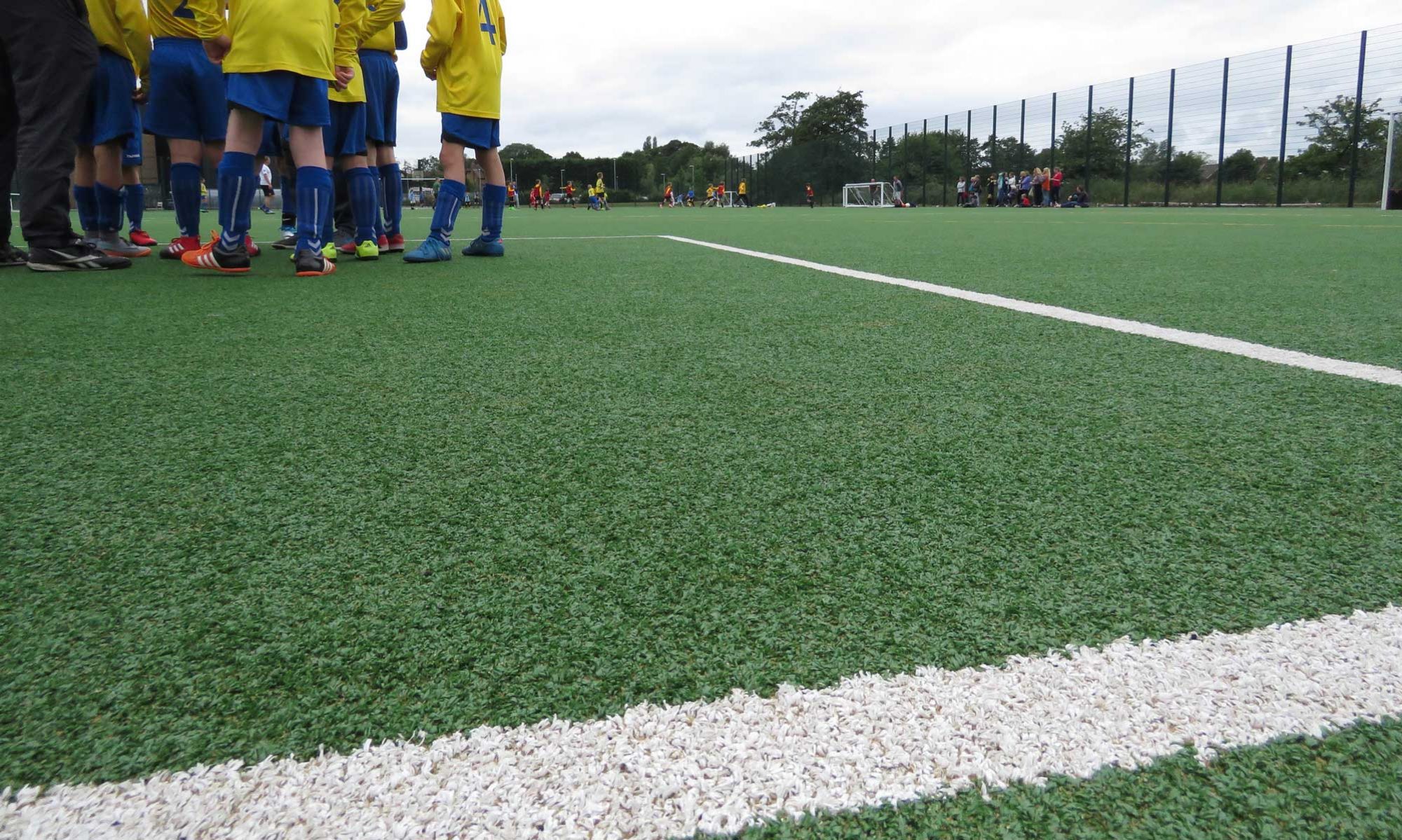Every child or young person who plays or participates in football should be able to take part in an enjoyable and safe environment and be protected from abuse. This is the responsibility of every adult involved in football, thus every club is required to endorse and adhere to The Association’s Safeguarding Children Policy.
The FA recognises its responsibility to safeguard the welfare of children and young people who play or participate in football by protecting them from abuse and harm. The FA is committed to working to provide a safe environment for all children and young people to participate in the sport to the best of their abilities for as long as they choose to do so.
The FA recognises that the terms ‘child or young person’, ‘abuse’ and ‘harm’ are open to interpretation and challenge but for the purpose of this Safeguarding Children policy they are defined as follows:
A child or young person shall be defined as:
- Anyone who has not yet reached their 18th birthday.
Abuse shall be defined as:
- a violation of an individual’s human or civil rights by any other person or persons and, for the purposes of safeguarding children, shall include physical abuse, emotional abuse, sexual abuse, neglect, bullying and hazing.’
- Harm shall be defined as:
- ‘Ill treatment and forms of ill treatment (including sexual abuse and forms of ill-treatment which are not physical) and also the impairment of or an avoidable deterioration in physical or mental health and the impairment of physical, intellectual, emotional, social or behavioural development.’
- ‘Harm’ may be caused by acts of commission and acts of omission.
- The Safeguarding Children Policy is supported by The FA’s Respect programme to address verbal abuse and bullying of youngsters by parents and coaches on the side lines.
The Association’s Safeguarding Children Policy principles are that:
- The child’s welfare is, and must always be, the paramount consideration;
- All children and young people have a right to be protected from abuse regardless of their age, gender, disability, culture, language, race, faith, belief or sexual orientation;
- All suspicions and allegations of abuse will be taken seriously and responded to swiftly and appropriately; and
- Working in partnership with other organisations, children and young people and their parents and carers is essential.
The FA is committed to working in partnership with the Police, Children’s Services Departments, Local Safeguarding Children’s Boards (LSCB) and the Disclosure and Barring Service (DBS) in accordance with their procedures. This is essential to enable these organisations to carry out their statutory duties to investigate concerns and protect all children and young people.
The Association’s Safeguarding Children Policy is in response to government legislation and guidance, developed to safeguard the welfare and development of children and young people.
Clubs and Leagues with youth teams must appoint a Welfare Officer in line with FA affiliation requirements.
Club Welfare Officers are expected to abide by the Code of Conduct for volunteer Welfare Officers.
A CODE OF CONDUCT FOR VOLUNTEER WELFARE OFFICERS
The role of the Welfare Officers is to:
- Be clear about the Club’s responsibilities when running activities for children and young people
- Help those actively involved with children and young people understand what their duty of care means on a day to day basis.
As a Welfare Officer they will act as a role model to others in accordance with the roles and responsibilities of their position, in line with FA Rules and Regulations, the Respect codes of conduct for officials and the laws of the game.
In fulfilling the role they accept that within the role of Welfare Officer they will:
- Be child centred at all times and promote a fun safe environment for children and young people
- Follow all of the FA’s policies and in particular procedures for reporting safeguarding concerns including discrimination
- Act appropriately in all situations brought to their attention
- Champion Best Practice within their Club
- Communicate and positively engage with the CFA WO on all poor practice/ safeguarding matters brought to the attention of CFA /The FA
- Attend meetings as reasonably required by the Club Committee, Youth League and CFA
- Manage and deal with poor practice issues in an appropriate and timely manner
- Ensure appropriate levels of confidentiality and data security are maintained at all times
- Implement and manage a responsible recruitment process in line with The FA’s policy and procedures
- Attend continued personal development (CPD) opportunities as offered by their CFA and show a commitment to keeping their training up to date
If they do not follow the above code any/all of the following actions may be undertaken by their Club, County FA or The FA (This is not an exhaustive list):
- Required to meet with the Club/League Committee, YLWO or CFA WO
- Required to follow an action plan monitored by the YLWO/CFA WO
- Required to complete an FA education course
- Suspended by the Club
- Fined or suspended by the County FA
- Required to leave the Club they represent
- Removed from role by the Club/County FA/The FA
On appointment, the Club Welfare Officers agree to uphold the Code of Conduct for volunteer Welfare Officers and understand the actions that may be taken should they fail to act in accordance with the Code. In agreeing to fulfil the role they confirm that they meet the criteria outlined within The FAs Suitability
WELFARE OFFICER PERSON SPECIFICATION AND SUITABILITY CHECKLIST
1. Person Specification – Essential:
- Experience of dealing or working with young people
- Knowledge and understanding of safeguarding children issues.
- A good communicator in a variety of situations with people from diverse backgrounds
- Committed to and ability to abide by The FA Rules and Regulations and promote The FAs Respect programme and safeguarding children education.
- Empathy when dealing with individuals, sometimes in demanding situations
- Ability to listen and assess situations fairly
- Ability to handle confidential information sensitively and with integrity
- Reasonable level of administration experience and how to deal with confidential documentation
- Willingness to attend any in-service training facilitated by either The FA or the local County FA
Desirable
- Knowledge and understanding of grassroots football
- Access to the internet
- Ability to use Emails
2. Suitability Checklist – Essential
- Willing and able to provide relevant current references
- Previous experience of dealing or working with children
- Knowledge of and positive attitudes to equal opportunities
- Commitment to treat all children as individuals and with equal concern
- Physical health – appropriate to carry out tasks
- Integrity and flexibility
- At least 18 years of age
- Completion of The Association’s Criminal Records Checks (CRC) process and acceptance by The Association of the outcome
- Understanding of the need for confidentiality when dealing with issues
- Reasonable level of administration experience and how to deal with confidential documentation
- Completion of the FAs Safeguarding Children Workshop and Welfare Officer Workshop
- Willingness to update skills and knowledge and attend in-service training facilitated by The FA or the local County FA
Has signed up to and agree to abide by the Code of Conduct for volunteer Welfare Officers
- Knowledge of child protection issues
- Knowledge of safeguarding children legislation
- Relevant football knowledge/understanding
NB If anyone is known to be unsuitable to work with children his/her application should be refused by the Club. If in any doubt about an applicant contact your County FA Welfare officer.
More Information and Footnote References
If you need any further advice or information please contact your County FA Welfare Officer who will be happy to help you. More information about the role of the Welfare Officer is available on
www.thefa.com/football-rules-governance/safeguarding and clicking on Welfare Officer FAQs under the Welfare Officer section and also on the Respect pages under ‘My Role’ simply click on Welfare Officer.
1 This can be gained through The FA’s Safeguarding Children Education Programme; see www.thefa.com/football-rules-governance/safeguarding for further information or speak to your County FA Welfare Officer.
2 The Association’s Policy on CRCs has been amended in light of the Safeguarding Vulnerable Groups Act 2006 and the Protection of Freedoms Act 2012. For more information please visit www.thefa.com/football-rules-governance/safeguarding/criminal-records-checks or e-mail FAchecks@thefa.com or call 0845 210 8080.
3 Some people with a history of offending can still be considered for roles in football that involve children. For more information please visit www.thefa.com/football-rules-governance/safeguarding/criminal-records-checks or e-mail FAchecks@thefa.com or call 0845 210 8080.
The Football Association reserves the right to refuse to accept any individual as a Welfare Officer where there is significant information held by The FA or County Association to suggest that they do not meet the suitability criteria provided.
The Clubs Welfare Officers are.
Andrew Corness
T:
E: welfare@bleakhillrovers.com
T:
E:welfare@bleakhillrovers.com
County Football Association’s Welfare Officer
- www.TheFA.com/Footballsafe
- Emailing – Footballsafe@TheFA.com
- The FA Safeguarding Children general enquiry line 0845 210 80


